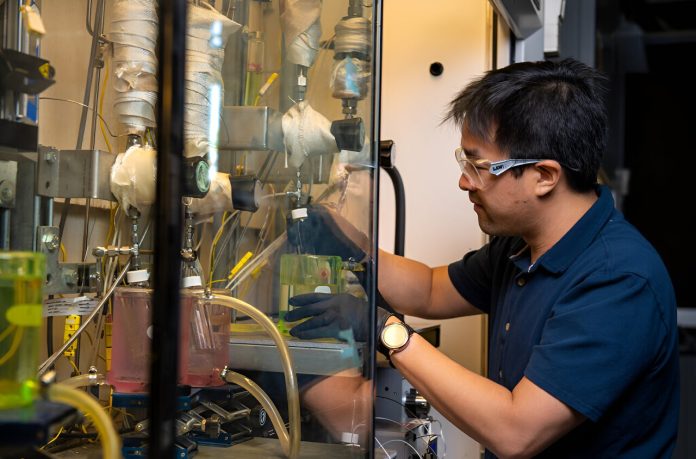
Scientists at Washington State University (WSU) have developed a new method to produce sustainable jet fuel from plant waste, specifically lignin—a tough, woody component found in plant cells.
This innovation could play a significant role in reducing the environmental impact of air travel by creating a more sustainable alternative to traditional fossil-based jet fuel.
Lignin is abundant in agricultural byproducts like corn stover, which includes the stalks, cobs, and leaves left after harvesting.
The WSU research team, led by Professor Bin Yang from the Department of Biological Systems Engineering, has successfully tested a process that converts lignin directly into jet fuel.
Their research, published in the journal Fuel Processing Technology, marks an important step toward making this technology viable for commercial aviation.
The process developed by the team is called “simultaneous depolymerization and hydrodeoxygenation” (SDHDO).
This method breaks down the lignin polymer and removes oxygen at the same time, creating a lignin-based jet fuel.
The successful test took place at WSU’s facility in Richland, where the researchers used a continuous hydrotreating reactor to produce the fuel.
The aviation industry is a major consumer of fuel, with global usage reaching nearly 100 billion gallons in 2019.
As the demand for air travel continues to grow, the need for sustainable aviation fuels becomes more urgent.
Plant-based fuels like those made from lignin offer a way to reduce the industry’s carbon footprint and help meet international carbon neutrality goals.
Lignin-based jet fuel has several advantages over conventional fossil fuels. It can produce hydrocarbons that match or even improve upon the performance of current fuels.
These hydrocarbons can replace fossil-derived aromatics, which are compounds that contribute to contrails and climate impacts but are still used because they enhance fuel density and help maintain seals in aircraft engines.
This research marks the first successful test of a continuous process for producing lignin-based fuel, making it more practical for large-scale commercial production. The team used a less processed and less expensive form of lignin called “technical lignin,” which is derived from corn stover.
By refining their process, the WSU team hopes to improve the efficiency and reduce the costs of producing this sustainable fuel.
Their ultimate goal is to create a fuel that can be used seamlessly with existing engines, infrastructure, and aircraft, making sustainable aviation fuels fully “drop-in” capable—ready to replace fossil fuels without requiring any modifications.
This breakthrough represents a promising step toward a cleaner and more sustainable future for aviation.



